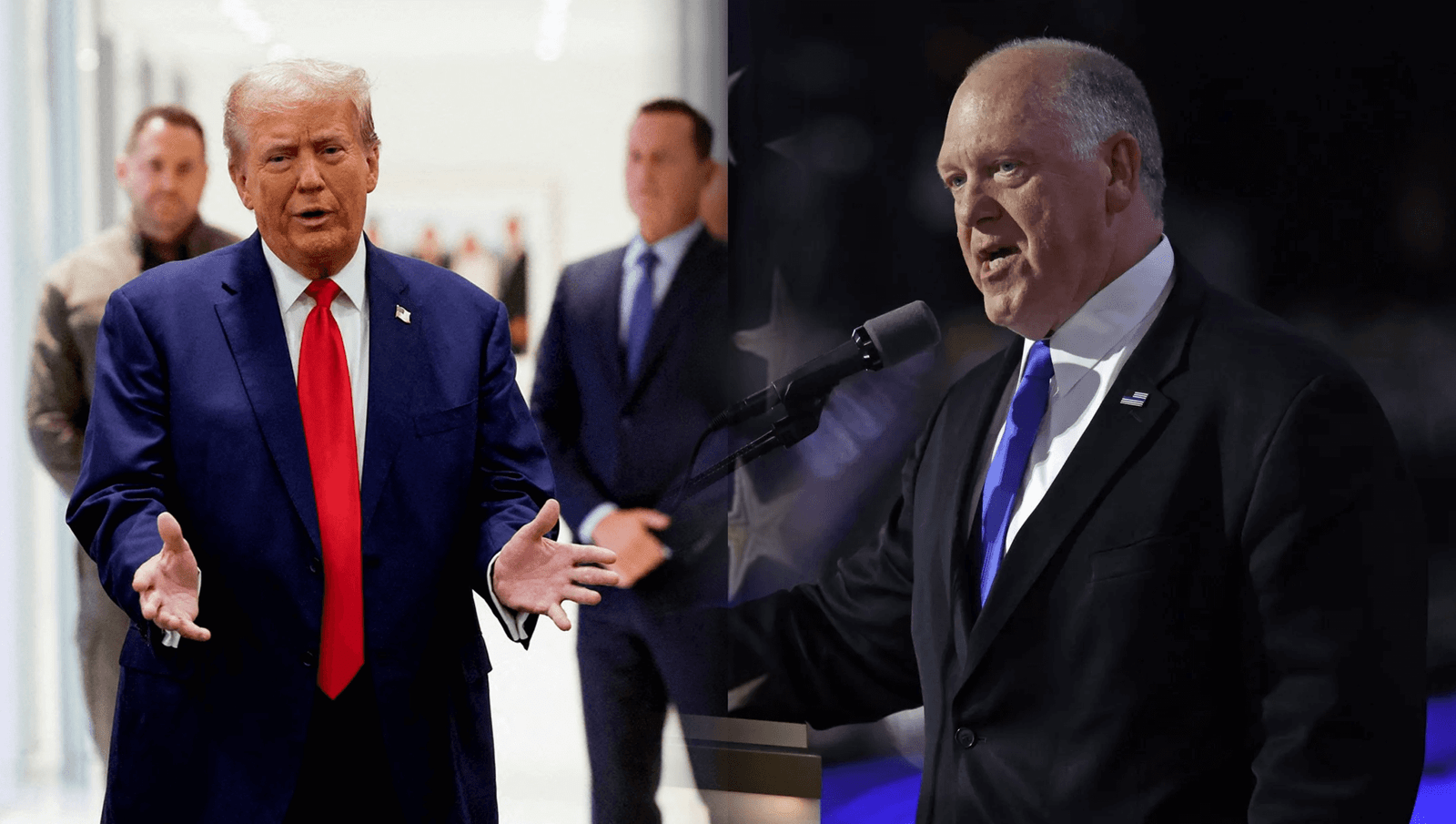The debate over immigration continues to be one of the most divisive issues in American politics. Under former President Donald Trump, the administration’s hardline stance on immigration was a hallmark of his tenure, and even after leaving office, many of his closest advisors are still advocating for policies designed to address what they perceive as weaknesses in the country’s immigration system. One such advocate is Tom Homan, who served as the acting director of U.S. Immigration and Customs Enforcement (ICE) under Trump. Recently, Homan has pushed for a new initiative to catch immigrants who are in the United States illegally: a national tip line.
The Proposal for a National Tip Line
Tom Homan has suggested that the U.S. government create a hotline or tip line, where citizens could anonymously report individuals they suspect are residing in the country illegally. The proposal comes in response to what Homan describes as the failure of current immigration enforcement practices. Homan has argued that existing policies, particularly those implemented under the Biden administration, have resulted in lax enforcement of immigration laws, with individuals entering the country unlawfully and remaining in the U.S. without consequences.
In Homan’s view, this tip line would be a tool to help authorities identify and apprehend individuals who have overstayed their visas, crossed the border without proper documentation, or otherwise remain in the U.S. illegally. The initiative would essentially open up a channel for the public to play an active role in identifying and reporting immigration violations, potentially increasing the government’s ability to enforce existing immigration laws.
Homan’s Rationale: A Call for Stronger Border Enforcement
Homan, a staunch supporter of stronger border enforcement and stricter immigration policies, has frequently criticized the Biden administration for what he perceives as a lack of commitment to upholding immigration laws. He believes that the current approach to immigration enforcement is too lenient and that creating a tip line could serve as a key component in restoring what he views as the rule of law.
For Homan, a tip line could be especially useful in catching individuals who have evaded detection by immigration authorities. By allowing members of the public to report potential violators, the government could increase its surveillance capabilities and make the process of apprehending those in the U.S. illegally more efficient. Furthermore, Homan believes that this initiative could be crucial for tackling issues like visa overstays, which he points to as a significant problem in the U.S. immigration system.
In previous interviews, Homan has stated that such a program could help alleviate the burden on border patrol agents and immigration officers, who may be overwhelmed by the sheer volume of individuals entering the country. He argues that by involving the public in the process, authorities can more effectively target and remove individuals who do not have legal authorization to remain in the U.S.
Potential Controversies and Concerns
While Homan’s proposal may resonate with those who advocate for stricter immigration controls, it has also sparked significant controversy. Critics argue that a national tip line could lead to a range of negative consequences, including racial profiling, false reports, and violations of privacy. There are concerns that the tip line could disproportionately target certain communities, particularly immigrants and people of color, who may be more likely to be reported based on discriminatory motives.
One of the most significant concerns is the potential for abuse. Critics argue that such a system could be weaponized, leading to harassment and false accusations against individuals simply because of their appearance or national origin. For example, a person with an accent or foreign appearance might be unfairly reported without any actual evidence of immigration violations, leading to unnecessary investigations and complications for innocent individuals.
Additionally, opponents of the tip line argue that it could foster a culture of fear and division within communities. Immigrant rights groups have warned that creating a national reporting system could increase mistrust between immigrant communities and law enforcement, making it harder for authorities to build relationships and foster cooperation in other areas, such as public safety. Some fear that individuals may be less likely to report crimes or cooperate with police if they fear being targeted for their immigration status.
There is also concern about the ethics of incentivizing public participation in surveillance activities. Some argue that it could create a “snitch culture,” where people are encouraged to report their neighbors, coworkers, or even family members based solely on suspicion or bias. This could undermine social cohesion and erode trust in institutions.
Political Reactions: A Divisive Proposal
Homan’s proposal has been met with starkly different reactions from politicians across the spectrum. Supporters of stricter immigration policies, particularly from conservative circles, have expressed enthusiasm about the idea. They argue that such a measure is necessary to curb illegal immigration, protect American jobs, and uphold the rule of law.
On the other hand, opponents—mostly from progressive and immigrant rights groups—have strongly criticized the proposal. They argue that it would deepen the divide between immigrant communities and law enforcement, potentially leading to increased fear, harassment, and displacement for vulnerable individuals. Some have also pointed out that the U.S. already has mechanisms in place for reporting immigration violations, and that a tip line would simply add an unnecessary layer of complexity.
For now, Homan’s proposal remains just that—an idea that is likely to face significant opposition in both public and political arenas. While the suggestion of a national tip line may have some traction within certain segments of the population, the broader debate about how to address illegal immigration and reform the U.S. immigration system remains unresolved.
The discussion around Tom Homan’s proposal for a national tip line highlights the ongoing tension surrounding U.S. immigration policy. The call for stronger enforcement is counterbalanced by concerns about civil liberties, community trust, and the potential for abuse. As the debate continues, the broader issue of how to reform immigration laws in a fair, effective, and humane way remains a key challenge for policymakers on both sides of the political spectrum.
While Homan’s tip line idea may gain traction among those who advocate for stricter immigration controls, it’s clear that any proposal aimed at addressing illegal immigration will need to balance enforcement with the rights and dignity of individuals, particularly those in immigrant communities. The conversation about immigration in the U.S. will undoubtedly continue to evolve, but for now, Tom Homan’s call for a national tip line remains one of the latest flashpoints in an ongoing and often contentious debate.








